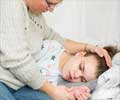
Two new studies presented at the American Epilepsy Society''s 67th Annual Meeting in Washington D.C. provide data that warrants the development of non-invasive devices with the capability to signal the onset of an epileptic seizure and could be crucial to optimal patient dosing.
Interim analysis that aims to validate a seizure detection software algorithm was presented to support the development of a non-invasive detection device with the ability to measure electromyography (EMG) signals (Poster 2.037/ Abstract 1750832). Patients in this study were asked to wear an arm-device that detected all GTCS within 30 seconds of arm motor action. Twenty-nine patients with a history of seizures were enrolled in the study while in the hospital Epilepsy Monitoring Unit for routine EEG monitoring.
"Our study demonstrates the feasibility to detect generalized tonic-clonic seizures with an arm device analyzing muscle activity during daily living. We were able to capture the GTCS through analysis of EMG signals and confirmed these seizures using video-EEG (VEEG) recordings. The software algorithm was optimized using baseline measurements of maximum voluntary muscle contraction (MVC). In every instance that a GTCS was recorded by vEEG, it was also captured by EMG," said Akos Szabo, MD, the lead researcher of the study.
The results determined that the seizure detection algorithm appeared superior to the other devices currently under investigation or currently commercialized. No false alarms were triggered during activities of normal living.
In a related study conducted by an interdisciplinary team that includes clinician and research experts in epilepsy from the University of Texas Houston, and bioengineers from Rice University, programmable Bio-Nano-Chips (p-BNCs) are presented here in their first application as a non-invasive, repeatable and adaptable alternative to serial serum antiepileptic drug measurements (Abstract 1750229). This study provides a report on progress towards the development of a realistic saliva-based BNC system demonstrating proof of concept of simultaneous detection and quantitation of two commonly used antiepileptic drugs - phenytoin (PHT) and phenobarbital (PHB). Advantages offered by this technology include the potential for the patients or their caregiver to monitor the levels of antiepileptic drugs in their system, always in a non-invasive, cost effective manner outside the doctor''s office.
Advertisement
The BNC calibration signals are robust and provide ultra-low reliable limits of detection, and compare favorably to the in-lab reference or gold standards. Further work aims to produce a practical point of care diagnostic, eventually a hand-held device hosting a disposable, credit card-sized lab card that will empower patients to monitor drug intake on their own.
Advertisement
About the American Epilepsy Society
The American Epilepsy Society, based in West Hartford, Conn., seeks to advance and improve the treatment of epilepsy through the promotion of research and education for healthcare professionals. Society membership includes epileptologists and other medical and allied healthcare professionals, and scientists concerned with the care of people who have seizures and epilepsy.
Source-Newswise















